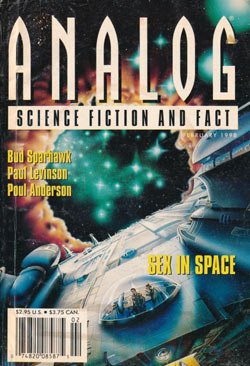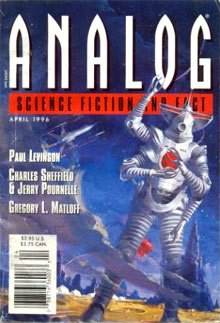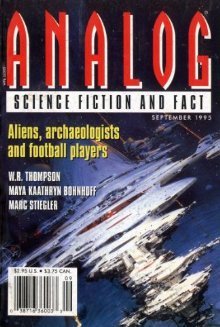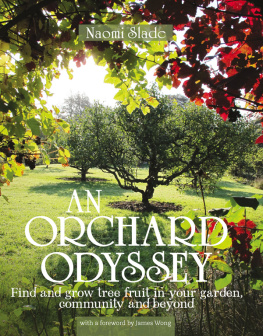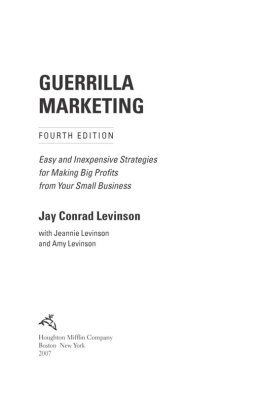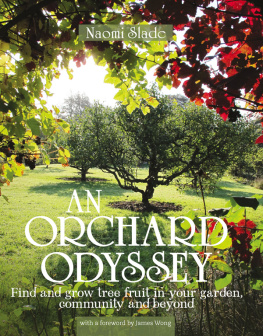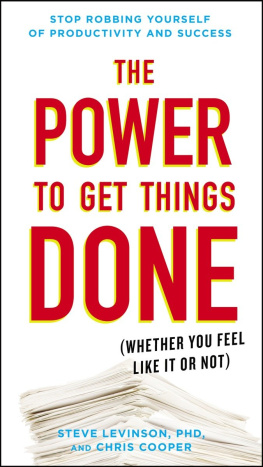Paul Levinson - The Orchard
Here you can read online Paul Levinson - The Orchard full text of the book (entire story) in english for free. Download pdf and epub, get meaning, cover and reviews about this ebook. year: 1998, publisher: Dell Magazines, genre: Science fiction. Description of the work, (preface) as well as reviews are available. Best literature library LitArk.com created for fans of good reading and offers a wide selection of genres:
Romance novel
Science fiction
Adventure
Detective
Science
History
Home and family
Prose
Art
Politics
Computer
Non-fiction
Religion
Business
Children
Humor
Choose a favorite category and find really read worthwhile books. Enjoy immersion in the world of imagination, feel the emotions of the characters or learn something new for yourself, make an fascinating discovery.
- Book:The Orchard
- Author:
- Publisher:Dell Magazines
- Genre:
- Year:1998
- Rating:3 / 5
- Favourites:Add to favourites
- Your mark:
- 60
- 1
- 2
- 3
- 4
- 5
The Orchard: summary, description and annotation
We offer to read an annotation, description, summary or preface (depends on what the author of the book "The Orchard" wrote himself). If you haven't found the necessary information about the book — write in the comments, we will try to find it.
The Orchard — read online for free the complete book (whole text) full work
Below is the text of the book, divided by pages. System saving the place of the last page read, allows you to conveniently read the book "The Orchard" online for free, without having to search again every time where you left off. Put a bookmark, and you can go to the page where you finished reading at any time.
Font size:
Interval:
Bookmark:
The Orchard
by Paul Levinson

Illustration by Darryl Elliott
The wind blew through the fruiting trees on the hill. Branches sagged with their burden, scenting the air with invitation, attracting moths that flew and climbed and crawled and penetrated. Soft things fell to the ground, opening and oozing, calling forth more of the world around them.
It had been a long time since intelligence had set this in motion. Yet once there had been just a scraggly sapling or two on this bill, thin hints of things to come; later replaced by careful, deliberate rows of the bearers of luscious gifts. And after the initiation, intelligence had continued to tend this. Arranging with some logic the moldering leaves that fertilized the ground. Discouraging parasites, large and small, that would attack the trees, or plunder the fruit, dismember their beauty, before their time. The trees were bred to take countermeasures, take care of themselves
And when the intelligence left, the trees carried on. More went fallow than under watchful eyes, a branch on this tree went a bit wild and choked out another. Thirty percent eventually died, twenty percent new growth sprung up in unordered places, but the trees carried on. As they had been intended to do. They had not the perception to miss their guardians, nor the capacity to do anything about it even if they had. But they continued. Fruiting for a quarter of their planets revolution around its star, leafy green the next half, barren in the wintry season. Fruiting, leafy, barren
And one day, another flying thing came out of the sky
The story of this expedition had been told long before the technology existed to make it possible. Humans achieved faster-than-light travelartificial wormholes punctured Einsteins conservatism about speed-of-light well before the end of the 21st centuryand by the 22nd this had been developed into a more advanced snake hole system that could intelligently route a star craft just about anywhere within a 200-light-year radius from Earth. This newly accessible sea of stars and planets became to the human species what Earth itself, a sea of continents, had been since Magellans voyage in the 16th century. And the search for intelligent life was on.
Life it turned up aplenty. A bumper crop. Teeming, colorful, DNA-based, locomotive, photosynthetic, and morethe whole enchiladabut not a speck of it like anything humans would call humanly intelligent. The cognitive abilities of even chimps and dplphins were utterly lacking in the exo-phyla catalogued by the human teams dispatched to Earth-type planets around foreign suns.
And so the story of this expedition was oldanother ship in search of the bright elusive butterfly of intelligence in the cosmos. Another team eager to award the appellation of human-level intelligence to some deserving species.
It was lonely at the top.
Deborah Sung-Lee was chief of the five-person first-skim team. Her specialty was cognitive exo-anthropologyanthropology having evolved to mean not just human but intelligent by this century, an odd linguistic turn considering that its new extended subject had yet to be discovered in reality. In truth it was more a hope than a description of a discipline.
The purpose of this first in-person encounter with the fifth planet of Beta Hydri was textbook tech-check: a thorough scan and sniff and sift of the planets land, air, and water for any sign of technology, any imprint of the peculiar kind of order that ran both counter and parallel to that of living structure. This meant a hunt for any perturbation of nature, even a discoloration of the soil that humans could take to be evidence of intelligent intervention in the course of things.
The first possible candidate she found was death.
Hers.
Martin Kendrickexo-fossilist, Deborahs lover, and now, by virtue of his seniority, first in commandstroked her face repeatedly, then moved his forefinger from his lips to hers, and whispered good-bye.
He turned to his colleagues. The book says we get to vote, in these circumstances, whether to leave or continue working here, he said, voice scratchy with emotion. Your thoughts?
The problem, of course, is we dont know why she died, Pavel Chakravarty, the teams DNA statistician, said. So theres some probability that we could all die trying to discover why.
Our directive is to look for intelligent life, Jake Venza, macro-ecologist, countered. Nothing takes precedence over that. Human death on an alien planet, while not unknown, is by definition unusualit could be the result of alien intelligence. We didnt ask anyones permission to land here. Maybe the locals got angry.
If there are locals here with any intelligence, so far theyve been invisible, Martin said quietly.
Pavel made a show of consulting his pad, even though he had memorized the relevant numbers. Deborahs is the 17th death out of 961 humans exploring worlds outside of our Solar System in the past 76 years. Seven were from natural causes, three from technological malfunction or accident, seven from local conditionsdisease, predator, food initially judged to be edible turned out otherwise. Actually, that last sub-category can also be considered technological malfunction, at least in two cases. But, in any event, none of the seventeen were the result of any known alien intelligence at work. We have no reason to think thats whats going on here.
Not the point, Jake said. Of course we have no positive reason to conclude that Deborah was deliberatelyor even accidentallykilled by some intelligence. But surely her death is more significant than nothing having happened here at all. Surely wed be idiots not to take that into account.
Were taking it into account right now, Martin replied.
Pavel, what do your figures show about our work intersections on the planet? Susannah Ring asked. She was the not-unusual combination of medical officer and exo-botanist for the group.
Pavel looked at his pad in earnest this time, punching in some numbers. OK, in the nearly fourteen earth-weeks weve been here on Beta Hydri 5, weve done sixty-seven different tasks outside, or the same tasks in different places. Minimum overlap for Deborah was twoshe never performed a task alone, none of us doand her average is 2.7. Her overlap on consumption of native foodleafy vegetables, tubers, stems, all tested as thoroughly compatible with human digestion, of courseis also right near the group mean, by the way. Deborah ingested nothing that at least two others of us havent also.
Not much help there, Jake muttered.
Well, no, that does suggest some sort of internal natural cause, Pavel said. And that assists us in knowing that this planet was likely not responsible for her death.
So why are you so eager to leave? Jake shot back.
Im not eager, I
Thats enough, Martin interrupted. He looked at Susannah. Your figures are likely the only ones that could really tell us something here, he said.
Susannah sighed. I cant conjure up answers where there are none. Her heart stopped, sometime in the middle of the night, apparently when she and we were all sound asleep. She hadnt performed any kind of dangerous, even stressful work before. She was apparently in perfect health, so she wasnt hooked up to any night monitorswhich would have woken me immediately when her heart stopped.
Well, were not making that mistake again, Martin said.
Susannah nodded. Yes, now that were each hooked up every night, we wont be taken by surprise like thatand I can revive someone whose heart stops. So can Pavel if mines the body in distress. But as to what caused it in Deborah? Whatever it was, it left no trace. So either it was some kind of short-lived, deadly poison, like curare, or her heart just stopped of its own accord. Thats been known to happen. An essentially meaningless death.
Font size:
Interval:
Bookmark:
Similar books «The Orchard»
Look at similar books to The Orchard. We have selected literature similar in name and meaning in the hope of providing readers with more options to find new, interesting, not yet read works.
Discussion, reviews of the book The Orchard and just readers' own opinions. Leave your comments, write what you think about the work, its meaning or the main characters. Specify what exactly you liked and what you didn't like, and why you think so.

